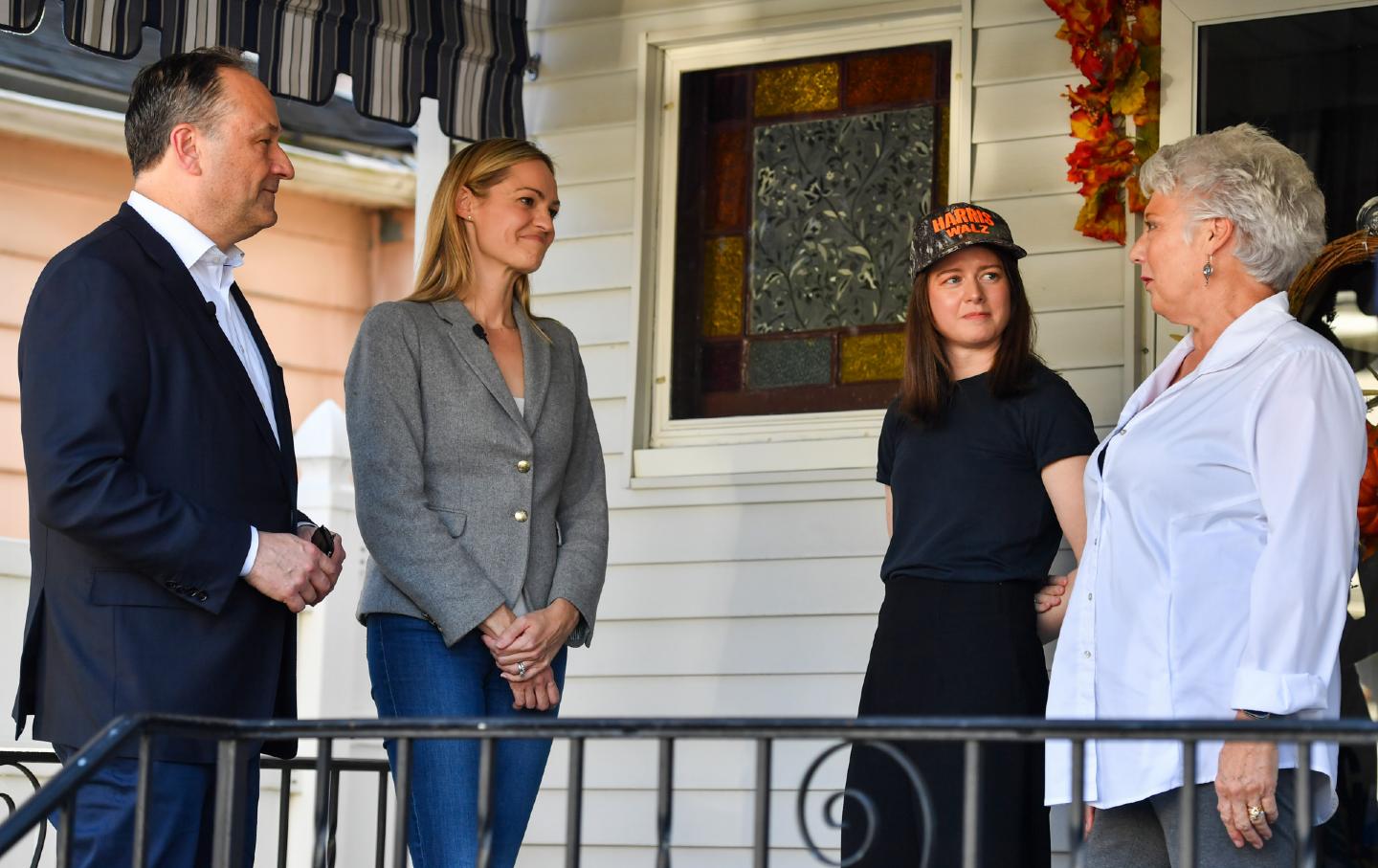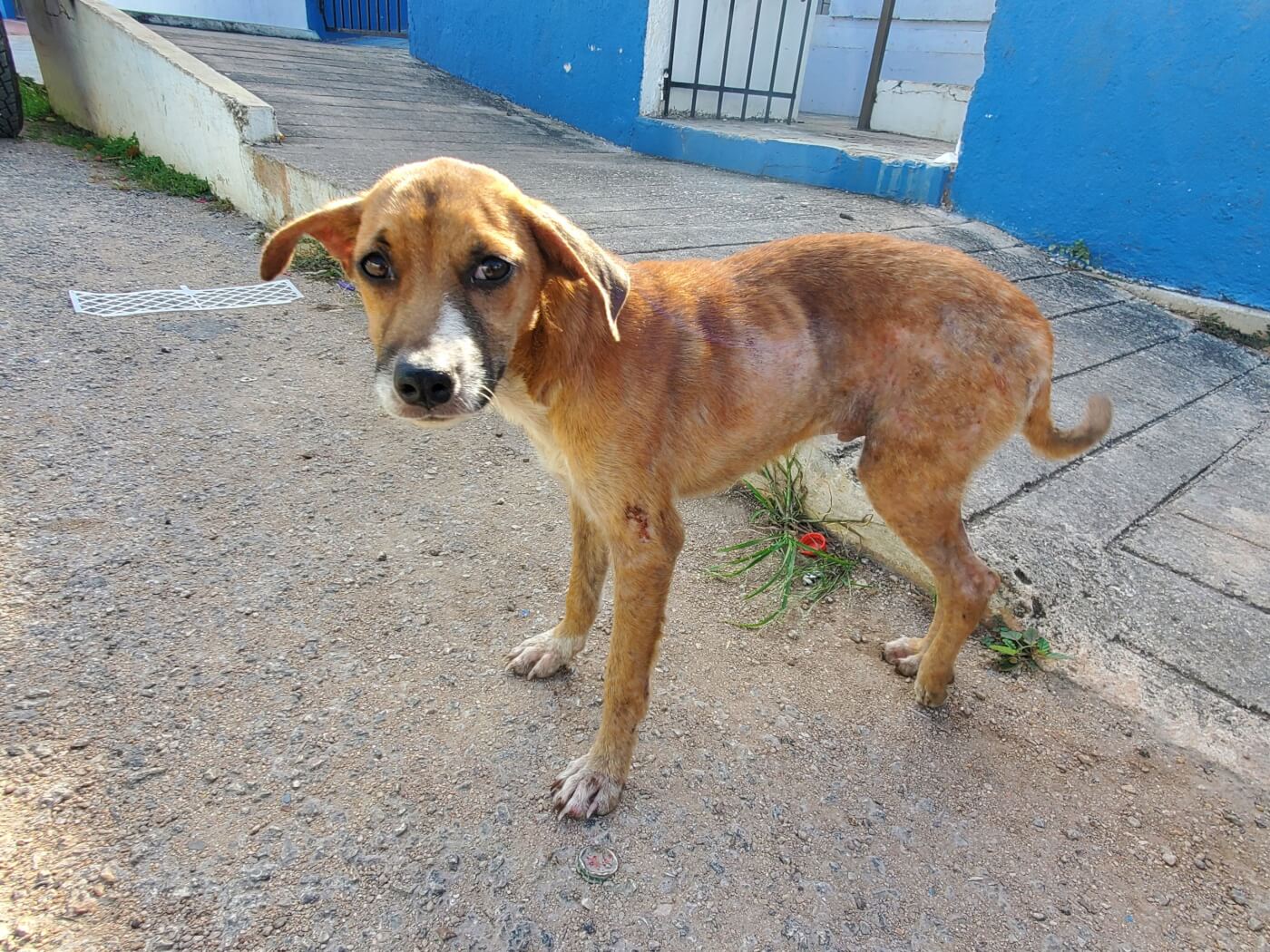I was born and raised on Long Island, but I always considered Brooklyn home. My childhood was extremely difficult and traumatic. My father was neglectful and abusive, and my stepdad and mother made things difficult for me at home as well. I grew up in between two places where I felt I didn’t belong and wasn’t accepted.
I was also struggling with my gender identity from a very young age. I didn’t really feel comfortable as a boy, but I knew very well not to express that. My father was hypermasculine and drank a lot. When I was a little child, he would tell me to stop acting like a bitch if I would cry or if I wanted to play with little girls in the neighborhood. He was very, very anti-woman. It wasn’t just like [the] average working-class white dad in the 1990s—he was actually extremely anti-woman. He used to beat all the women in his life: my mom, my stepmom, his girlfriend.
As I got into my teens, I started running away a lot. This was before queer and trans people were in the mainstream. This was before marriage equality. It was seen as a big deal to be gay, let alone trans. I never saw any positive media portrayals of us. You just saw us being weirdos and sex workers and stuff like that. I hated myself for feeling the way I felt, and at the time, I was extremely depressed. I found religion as an outlet. I was very studious and am still an avid reader. I would just retreat into my books. I used to read a lot about social justice struggles, especially the Black liberation story. I came across The Autobiography of Malcolm X and loved his discussion of how he became a Muslim. I converted to Islam and found a community. I found people who loved me unconditionally for the first time ever. However, Islam is still one of the Abrahamic religions, and the more conservative teachings still teach the gender binary. I felt like I had to act like a man, like how I was feeling was a sin.
At this time, it was 2010 and there was a lot of Islamophobia. My whole family was calling me a traitor and a terrorist. People were throwing stuff at me on the street. I was going on a whitewater rafting trip with a mosque youth group and the NYPD [New York Police Department] thought it would be cool to infiltrate the youth group. I met a guy who ended up being a cop. He befriended me and I was [later] arrested in a sting operation. They wanted me to be an informant and go to a Palestinian community and start conversations with people to make them say things that could be interpreted as radical. Even at a young age, I refused to go along with it. Because I refused, they punished me by giving me 13 years in prison for “attempting to provide material support to terrorists.” For essentially nothing.
I came of age in a supermax prison. I went into a men’s prison struggling with my gender identity and my attraction to men, while following an interpretation of a religion that told me that was wrong. During the coronavirus pandemic and the racial justice uprising of 2020, I came out as trans. By this time, I considered myself to be an activist and was involved with a prison abolitionist organization. I was doing what I call “jailhouse journalism.” There was a huge COVID-19 outbreak at the prison I was in in Georgia; people were dying, and nobody cared. I was doing interviews on the phone. They sent me to solitary confinement for two weeks, and I came out as trans. I just had enough. There was so much death around me, I felt like, “I have to live my life.” When I was in solitary confinement, I told my psychologist I was trans. When you tell your psychologist something in prison, nothing is private. After that, every officer on the block knew that I was trans, and these were not progressive people. These were people who got a kick out of it. They put me into a cell with a known rapist. We were on COVID-19 lockdown, where you would be in your cell 21 hours a day.
In prison, when you come out as trans or queer, you are immediately ostracized by everybody. When this happens, prepare to lose all your friends. Everybody basically treats you like they treated lepers in the Bible. They want you to stay away from them and not talk to them. But you would have people who would come to you on the sly asking for sex. Nobody wants you socially, but you still have a high percentage of people who want your body. I didn’t want to give my body to this dude in my cell, so he did what he did.
In prison, the queer community is close knit. We were locked down and I saw one of my friends who was nonbinary and I slipped them a note saying what happened. They told me to report it and I ended up telling the psychologist. They sent me to the lieutenant’s office, which is where you go when you get in trouble. Instead of giving me a rape kit or examining me, they started interrogating me like I had done something wrong. I started screaming at them that I was just sexually assaulted but the lieutenant said, “Oh, but you are gay right? Aren’t you supposed to like that stuff?”
This is the mentality of a lot of them. I said I was not going back to my cell, and they said, “We can just put you in protective custody.” For people who are not familiar with prison, protective custody sounds like a good thing. It’s not—it’s solitary confinement. You are not waiting for anything disciplinary; you are just there indefinitely. I didn’t get an evaluation by a psychologist or anything. They just threw me in a cell. They are supposed to have protocols by law, but they didn’t follow them. My friend ended up getting in trouble right after I got sent to solitary confinement and they demanded to be put in a cell with me. At least I had that.
Then they ended up sending me to a communication management unit, which is called “Baby Guantanamo.” These units are for people who had terrorism cases. There were a lot of white supremacist wackos, and you can only make two phone calls a week to your family. There is audio surveillance and video surveillance, and they have to approve of everyone who you get your mail from. They sent me to a unit in Illinois and it was filled with white supremacists. It was a horrible place to be. The walls just dripped with hatred. When I got there, an officer came to my cell and said, “Do I need to know anything about you? Do you need protection or anything like that.” And I am like, “For what?” I was trying to act as tough as possible. Deep down I was scared. He said, “You know what I am talking about.” He blurted out in front of everyone, “You are a faggot.” I was going to keep things to myself because of the environment, but he outed me to the whole unit. And, of course, I ended up denying it because I was afraid. And during the time I was in the communication management unit, they didn’t give any psychological support. There is none of that there. I ended up going back in the closet because I was afraid.
I had lawyers who were concerned enough about my situation, and they helped me get out of there 18 months later. I didn’t go home; I was sent to another jail in Maryland. Compared to where I came from, it was heaven. Everything is relative. It was like I came home. They put me in the cell with another femme. I still had to deal with the daily prison bullshit, but I felt a lot safer. I came out again. I started HRT [hormone replacement therapy] and this is when I really experienced the fact that they don’t care about the medical aspect of being trans. They didn’t send me to a specialist or endocrinologist; they sent me to a regular prison doctor. The doctor said I was “diagnosed as a transgender.” I said, “You mean with gender dysphoria?” He just had no idea what he was doing or what was going on. He was doing Google searches for the doses. They ended up putting me on one milligram, which is too small to do anything. There was no blood test.
At least at this prison, I didn’t experience the same type of harassment from the guards as at the other prison. But I feel like it is hard to make something that is so intrinsically inhumane, humane.
When they released me to a halfway house, they refused to send me to the women’s section. They sent me to the men’s section. I experienced daily harassment just for being a trans woman. They should make it easier to get into a facility of the gender you identify with. That is something I would have jumped on if I had the chance.
When I was in prison, I was involved in prison abolition work, and I felt like I was part of something bigger than myself. I would read the memoirs of Huey P. Newton and Assata Shakur. Their experiences in prison gave me inspiration to push on. Towards the end, I got into an intimate relationship with another prisoner that was very grounding and really helped me to push through all the trauma.
While I was incarcerated, the Black and Pink National pen pal program meant a lot. It helped to see people who are living their identities and living their truth and seeing that it is possible and doable. You can live a full life and be happy. Socially speaking, prison culture is like the 1950s. It is really conservative and you don’t see anything beyond the extremely hypermasculine. To see people who are like me was really awesome; it helped me push through. Experiencing an emotional connection in an environment where you are treated like an “other” was very helpful.





